Looking for ways to celebrate National Dictionary Day? The Walking Classroom can help you delve into this timely topic!
Held on the birthday of Noah Webster (October 16), the day commemorates his many accomplishments and contributions. Webster published his first dictionary, A Compendious Dictionary of the English Language in 1806. The next year, he began an expanded version, An American Dictionary of the English Language, which took 27 years to complete!
Words about Webster
Start by learning a little more about Noah Webster himself. Not only was Noah Webster the author of a dictionary or two, he was also a pioneer of spelling, and a political writer and editor! Have a look at the 1848 edition of his famous dictionary with your students.
Pick a Podcast
Go beyond Noah Webster and work your way deeper into words . . . and word skills. The Walking Classroom offers several podcasts for you and your students to explore.
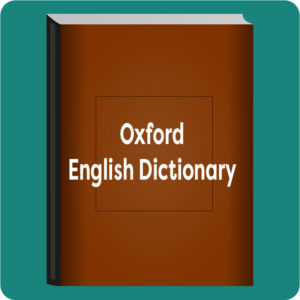 Have a listen to Oxford English Dictionary (5-#14, Complete-#10) and learn about the primary historical dictionary of the English language. You can find plenty of free resources, including a lesson plan focusing on using and working with the Oxford English Dictionary. Then, assess your students’ knowledge with a quick quiz.
Have a listen to Oxford English Dictionary (5-#14, Complete-#10) and learn about the primary historical dictionary of the English language. You can find plenty of free resources, including a lesson plan focusing on using and working with the Oxford English Dictionary. Then, assess your students’ knowledge with a quick quiz.
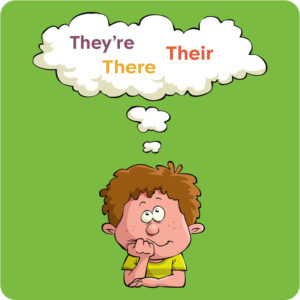 Next, focus to Homonyms and Homophones (4-#33, 5-#18, Complete-#12) to learn the difference between the two. Homophones have one pronunciation with at least two different spellings and meanings; homonyms are words that have one spelling but at least two different meanings. Afterward, have your students try some online games.
Next, focus to Homonyms and Homophones (4-#33, 5-#18, Complete-#12) to learn the difference between the two. Homophones have one pronunciation with at least two different spellings and meanings; homonyms are words that have one spelling but at least two different meanings. Afterward, have your students try some online games.
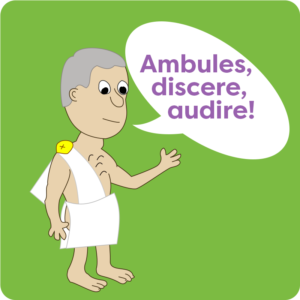 Or, walk, listen, and learn about Greek and Latin Root Words (5-#69, Complete-#13). Your students will be fascinated to find out that many of the words in the English language were created from the Greek and Latin language over 2,000 years ago. In fact, Greek and Latin root words are the base of approximately 20% of the words we use today.
Or, walk, listen, and learn about Greek and Latin Root Words (5-#69, Complete-#13). Your students will be fascinated to find out that many of the words in the English language were created from the Greek and Latin language over 2,000 years ago. In fact, Greek and Latin root words are the base of approximately 20% of the words we use today.
To extend the lesson, uncover the roots of words in an interactive online game or activity. You can even download a free vocabulary baseball game where the pitcher “throws” roots/prefixes/suffixes at batters. Batters can “score” by answering with the meaning of the root/prefix/suffix, an example word, and how that word utilizes the Greek/Latin word part in its meaning.
Celebrating Dictionary Day
There are lots of ways you can celebrate the day, beyond The Walking Classroom’s podcasts. For example, you can have your students dive into an array of dictionary activities or a dictionary scavenger hunt. You can even give some more games a go! There are a slew of suggestions and innovative ideas you can use to engage your students!
Learn about other timely topics and be on the lookout for more ideas in future posts.


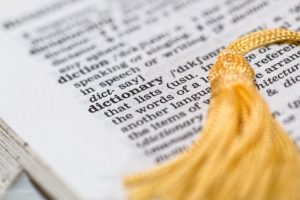
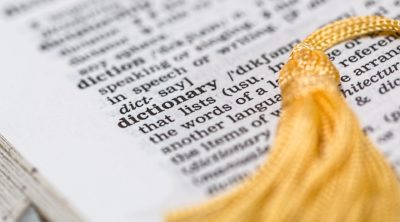
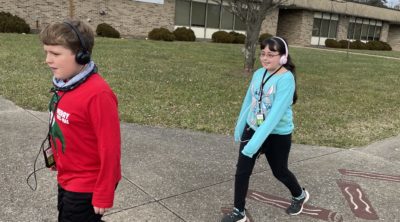
Leave a Reply